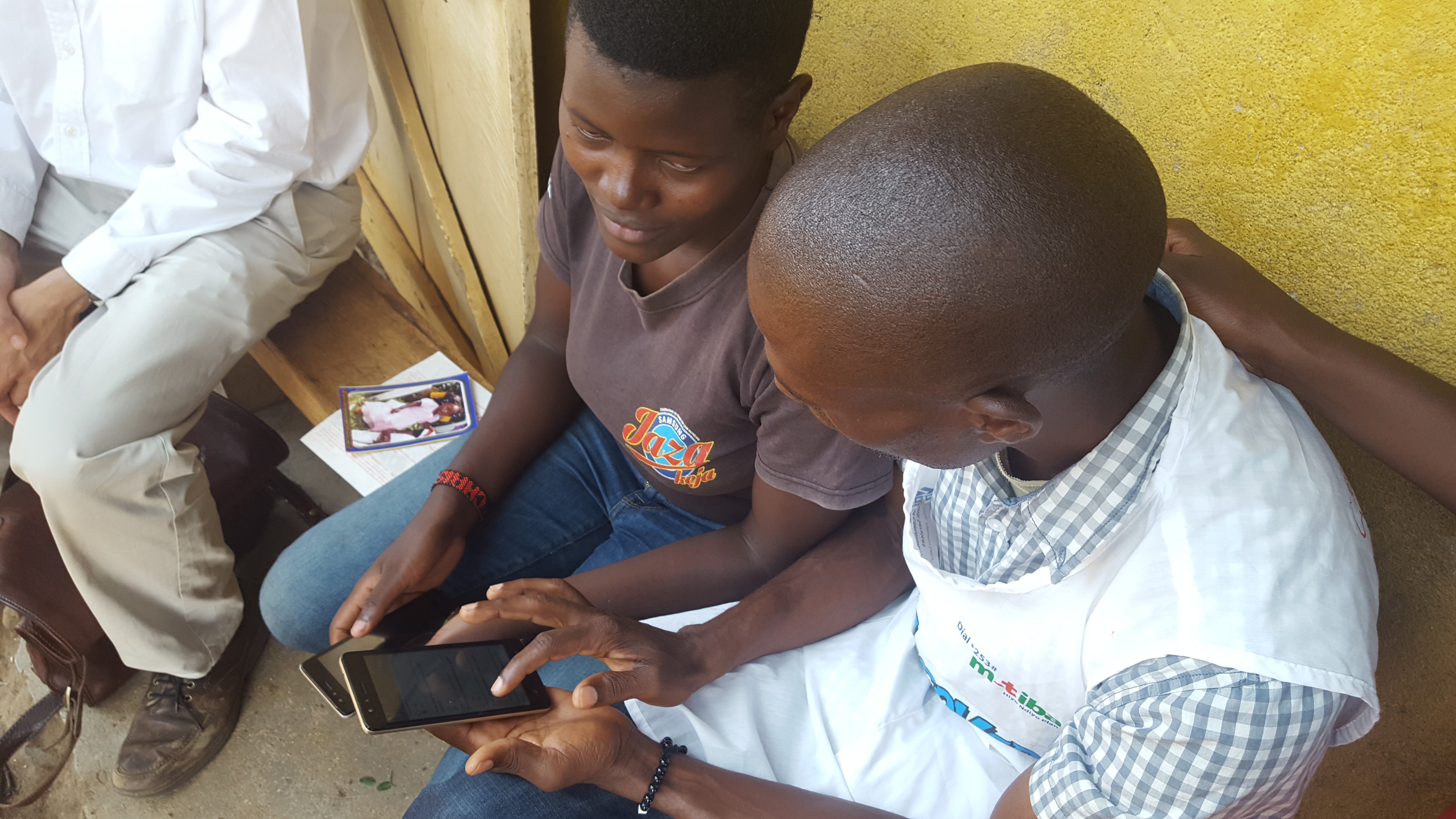
08 Jul AIGHD leads new diaries project focused on enhancing Universal Health Coverage in Kenya through digital innovations
Can digital tools help improve access to health care? A newly launched ‘diaries’ research study hopes to find out.
The Enhancing UHC in Kenya through digital innovations research project seeks to understand how Kenyan rural households manage their household finances and, how they decide on which type of health care to use and how to pay for it. The study is of particular importance as the Kenyan government has prioritized and committed to reaching Universal Health Coverage (UHC) within five years.
The study will be based on weekly financial and health diaries, to be collected among a sample of 350 families in the counties of Kakamega and Kisumu over a period of one year.
The research is a collaboration between the Africa Population Health Research Center (APHRC) and the Amsterdam Institute of Global Health and Development (AIGHD).
In Kakamega, the team will collaborate with Pharmaccess and Amref to evaluation the roll out of their i-Push project by conducting one-on-one diaries interviews. i-Push provides access to health insurance and mobile phone based digital tools (such as the health platform MTIBA) aimed to improve the health behavior, accessibility and quality of health care of low-income women of reproductive age and their family members.
“The weekly interviews are crucial to gaining insight into how digital technologies helps improve enrolment in health insurance and empower women in terms of their own health and children. This type of detailed knowledge of how and why people make certain decisions regarding their finances can help improve health care programs and ensure future tools are developed to be most effective for the end-user,” said Assoc. Prof. Janssens at the Vrije Universiteit Amsterdam and AIGHD and co-lead for the project, along with AIGHD’s Prof. Menno Pradhan.
In Kisumu, the research will investigate the effect of the free public care pilot as recently rolled out by the Kenyan government, which is also supported by PharmAccess’ MTIBA platform.
The research is a continuation of the Financial and Health Diaries project which took place in Kenya and Nigeria in 2012 and 2013. That project highlighted amongst others the vulnerability of low-income households to uninsured health shocks, the coping mechanisms such as gifts and informal savings that families use to deal with high health expenditures, and the differences between men and women in dealing with health risks. This providing new insights for the design of insurance marketing strategies, health programs and quality improvement efforts.
Project a ‘natural fit’ for key AIGHD partner
The Enhancing UHC in Kenya through digital innovations project kicked off April 1 and is the first that combines Financial and Health Diaries with an impact evaluation of a mobile-technology based health program.
This project is supported by a substantial grant from the Joep Lange Institute (JLI), one of AIGHD’s partner organizations. With a mission to promote the adoption of mobile digital health technologies to further UHC in low- and middle-income countries, the project was a natural fit and unique opportunity to bring the two institutes together.
“The power of Financial and Health Diaries to get detailed insights in how people make choices with respect to spending their money on health and healthcare is obvious. These diaries will provide invaluable information on how women actually use and appreciate M-TIBA as a facilitator of maternal and child health,” said Prof. Tobias Rinke de Wit, Director Research at JLI.
